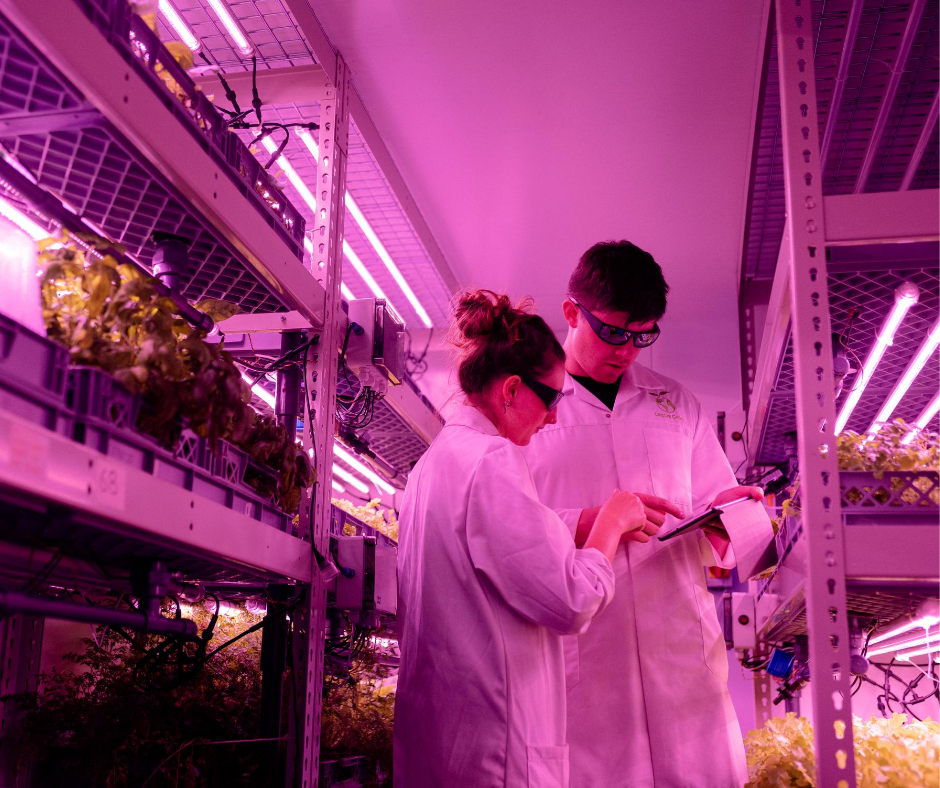Aug 6, 2020
STLCEA Seeking Pilot Farm To Research CEA Best Practices
.png)
Food production is the largest human impact on the planet. Habitat conversion, greenhouse gas (GHG) emissions, soil degradation, agrochemical runoff, and inefficient water use associated with current food production systems threaten the environment. World Wildlife Fund (WWF) envisions a food system that meets the needs of both people and nature, but to get there we must decrease the environmental impacts of food production through more efficient use of inputs, decreasing waste, reducing associated GHGs, and examining how to sustainably produce more food closer to consumers.
Guided by these goals, WWF identified the indoor soilless farming industry as one potential solution to decrease the environmental impacts caused by our current food production model. However, to be an effective alternative there are hurdles that must be overcome, namely the large energy footprint required by CEA farms that results in limited financial profitability for crops other than leafy greens and herbs.
During Phase I of its Indoor Soilless Farming project, WWF’s Markets Institute research team completed an Innovation Analysis examining the industry today, conducting a life cycle analysis to compare systems, exploring the potential to leverage stranded and underutilized assets and unique partnerships, and finally building a robust coalition of stakeholders to launch a new farming system.
Now in Phase II, these stakeholders—now called the St. Louis Controlled Environment Agriculture Coalition (STLCEA Coalition)--has been actively working to establish a CEA Center of Excellence and to bring one or more indoor farm operations to the region that will utilize unique partnerships, existing assets, and innovative technologies to tackle some of the challenges facing the industry in a commercially viable way and stakeholder-driven approach.
The (STLCEA Coalition) is seeking Statements of Interest from CEA companies to build, own, and/or operate one or more commercially viable indoor farms in St. Louis, Missouri, USA that will pilot research, technologies, and partnerships with existing entities as well as technologies generated by a newly formed St. Louis CEA Center of Excellence.
The STLCEA Coalition’s mission for this project is to address the challenges facing the industry in a commercially viable way, thereby accelerating the replication of CEA best practices globally. The Coalition will assist the selected farm developer(s) to define the scope and requirements of the project(s) to be developed. Agritecture’s Lead Systems Designer, Djavid Amidi-Abraham is playing an advisory role for the group by providing insight into development challenges, production system options, and the impact of market conditions on operational costs. Amidi-Abraham states, “Agritecture is committed to the successful development of the CEA community in St. Louis and is honored to be working with the selected group.”
About St. Louis CEA Coalition:
St. Louis is a global leader in agricultural innovation, agtech, and plant science, including 600+ agtech and bioscience firms, more than 750 plant science PhDs (one of the highest concentrations in the world), and more than 18,000 agtech and bioscience jobs. The STLCEA Coalition is a group of more than 70 members, including local stakeholders, economic development groups, VCs, banks, plant science experts, academics, universities, hospitals, groceries, major restaurant chains, community groups, indoor soilless farms, industry partners, and potential partner organizations seeking to add CEA innovation and farming to the Midwest’s history of being a global agricultural leader.
For more information please contact Julia Kurnik: Julia.Kurnik@wwfus.org
